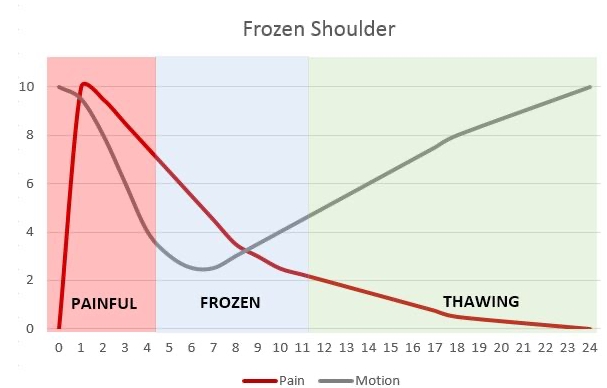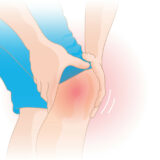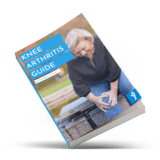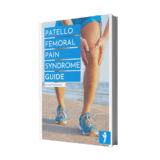What is a frozen shoulder?

What is a Frozen Shoulder
The frozen shoulder or in medical terms ‘adhesive capsulitis’ is a shoulder complaint that affects the capsule of the shoulder joint. During the episode of a frozen shoulder, the capsule of the shoulder joint gets inflamed and stiffens up. This shoulder complaint affects mostly women between the age of 40-60 years old. Besides the fact that there has been a lot of research about the shoulder, there isn’t a real reason why people get a frozen shoulder. The latest evidence tells us it has something to do with our immune system, but they are still doing a lot of research about this topic.
WHAT CAUSES A FROZEN SHOULDER
But what causes a frozen shoulder. A frozen shoulder can be caused by a traumatic event, like a fall, a shoulder tendon rupture but even shoulder surgery can be a cause for the beginning of a frozen shoulder. But a frozen shoulder can also just start without a reason. And to be honest, the frozen shoulder can be, without a good coping strategy, pretty disabling. Besides the fact that it can be quite painful and disabling during your daily activities. It can also take up to three years to heal. Because every phase can take three to twelve months to complete.
THE THREE PHASES OF THE FROZEN SHOULDER
And this long duration of this complaint is divided into three different stages. The first phase, the freezing phase is the phase when the pain increases along with a decrease in range of motion. So the shoulder is starting to freeze and get stiffer. The second phase is the frozen phase. In this phase, the shoulder pain decreases but the shoulder still stiffens up. So the shoulder gets frozen during this phase. In the third and final phase, the Thawing Phase, the shoulder stiffness is starting to decrease and the pain is at its minimum.

HOW TO TREAT A FROZEN SHOULDER
So now you know more about the phases of a frozen shoulder. But how do you deal with a frozen shoulder? The best way of dealing with a frozen shoulder is to give it time. If you’re going to rush yourself and your shoulder, it will only take longer to heal. Make sure you keep your shoulder moving but don’t irritate it too much. If the pain is decreasing, you can start building up your exercises and you can try to increase your mobility. That’s because you probably got into the second stage of the frozen shoulder. If you feel like your shoulder isn’t getting any stiffer and the pain is at its minimum, you’re probably in the last phase of the frozen shoulder, the thawing phase. In this phase, it’s important to increase your shoulder mobility and to get stronger and more functional. If you want to read more about the treatment of a frozen shoulder click read the following blog post
Book an online consultation for your shoulder complaint
You may have landed on this blog post in your search for information regarding your shoulder pain. Seeking information to gain insights into your health complaint is a good step in the direction of recovery. However, each shoulder complaint is different and finding the right solutions works best in an individualized approach. Thus, consider booking an online consultation




